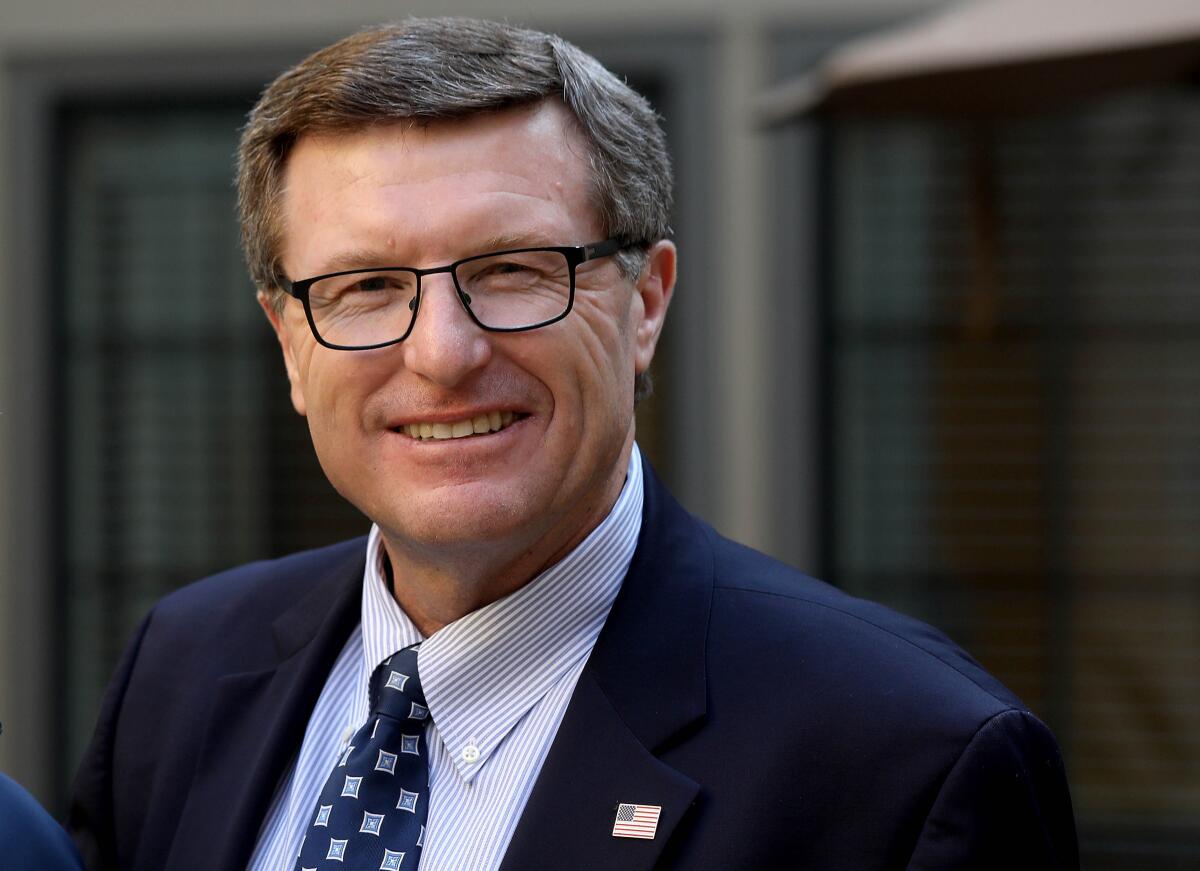U.S. court upholds COVID-19 delays in criminal trials, citing half a million lives lost

In a partial rebuke of a lower court jurist, a federal appeals court decided Friday that criminal defendants were not robbed of their right to speedy trials or forced unconstitutionally to remain behind bars because the COVID-19 pandemic delayed their trials.
“Surely a global pandemic that has claimed more than half a million lives in this country, and nearly 60,000 in California alone, falls within such unique circumstances to permit a court to temporarily suspend jury trials in the interest of public health,” said a three-judge panel of the U.S. 9th Circuit Court of Appeals.
The appeals court ruling effectively affirms that COVID-19 was an emergency that forced some courts to take unprecedented steps, including delaying proceedings. It means criminal defendants are unlikely to prevail in arguing that pandemic-induced delays should allow them to be released from jail or have their charges dismissed.
In one of three cases the panel decided, it reinstated charges against Jeffrey Olsen, a Newport Beach doctor who was indicted in July 2017 on 34 counts involving illegal distribution of opioids.
Olsen had successfully sought several delays in his trial while on bail. But after the U.S. District Court for the Central District of California, which includes Los Angeles and six neighboring counties, suspended jury trials due to public safety concerns over COVID-19, Olsen invoked his right to a speedy trial.
U.S. District Judge Cormac J. Carney ruled in favor of Olsen and dismissed the charges in a way that would make it impossible for prosecutors to refile them. The prosecution appealed.
The 9th Circuit called Carney’s ruling on Olsen “troubling,” clearly wrong on the law and an abuse of his discretion as a judge, resulting “in a miscarriage of justice.” Carney’s decision on Olsen was one of a handful in which the judge tossed criminal charges because of a belief the pandemic delays were unjustified.
Olsen had asked for trial delays eight times over three years and was granted them, the 9th Circuit said. He demanded a speedy trial only after jury trials were suspended, the appeals court said.
“By that time,” the court said, “the prosecution had been ready for trial for months and was wholly blameless for the Central District’s suspension of jury trials.”
The panel said Carney dismissed Olsen’s case because the judge believed it was unnecessary to further delay trials for safety concerns.
Carney “entirely failed to consider the facts and circumstances of Olsen’s case, including the years of continuances Olsen obtained while on pre-trial release and the absence of any prosecutorial culpability in causing the delay,” said the panel.
The decision, which was unsigned, came from 9th Circuit Judges Mary H. Murguia and Morgan Christen, both Obama appointees, and Judge Barbara M. G. Lynn, a Clinton appointee who serves as a chief district judge in Texas.
In the other two cases, one from the Central District, the other from Sacramento in the Eastern District, the panel denied appeals by inmates who asked to be released pending their trials, which the pandemic had delayed. The panel, warned, however, that more prolonged delays might violate the inmates’ rights.
Prosecution of alleged drug dealers, tax cheats and cyberthieves is disrupted by halt to federal jury trials in L.A. and six neighboring counties.
As The Times reported this month, the 13-month suspension of trials in the federal court system’s Central District of California has disrupted the prosecution of hundreds of alleged drug dealers, tax cheats, cybercriminals and other defendants. Courts have been clogged with an unprecedented backlog of criminal and civil cases.
While many of those charged have been free on bail as they await trial, others have remained behind bars, enduring long stretches of solitude as detainees are kept apart to minimize spread of the virus.
In many other jurisdictions, trials have moved forward during the pandemic, including in several California state courts. But those proceedings have raised questions about whether court employees were being unnecessarily exposed to the virus.
In January and February, four employees of the Los Angeles County Superior Court system died of COVID-19; it’s unclear whether they caught the coronavirus in court.
Altogether, Carney dismissed five criminal cases, saying he was troubled that trials at the same time were taking place in Orange County Superior Court and that federal grand juries were still meeting.
At least one jurist on the 9th Circuit panel, during an earlier hearing that led to Friday’s decision, questioned Carney’s motivation.
“Isn’t he trying to send a message to his colleagues?” Christen asked, alluding to Carney’s open annoyance with judges who overwhelmingly backed the shutdown of jury trials.
More to Read
Start your day right
Sign up for Essential California for news, features and recommendations from the L.A. Times and beyond in your inbox six days a week.
You may occasionally receive promotional content from the Los Angeles Times.








